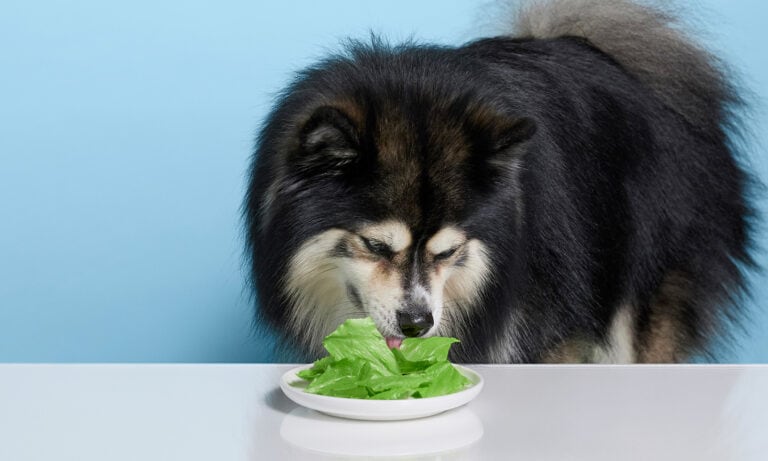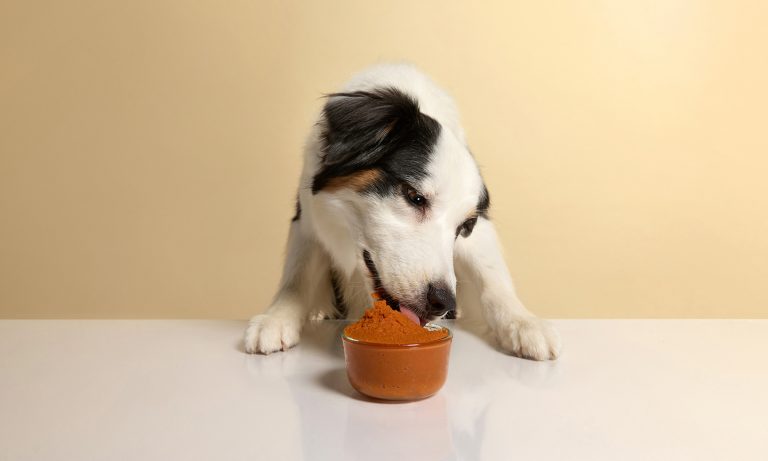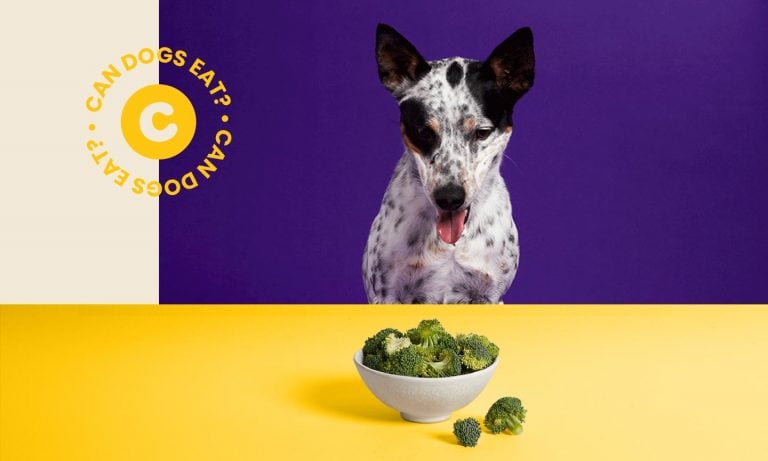For those looking to share this furry fruit with their favorite furry friends, here’s some good news: Dogs can eat peaches! Not only can dogs indulge in the sweet, juicy and oh-so succulent goodness of peaches along with us, but these fruits are also packed with vitamins, antioxidants and fiber—doubling as a delicious and nutritious treat for dogs.
Just remember that, as with any new food, especially human food, it’s always a good idea to consult your veterinarian before incorporating it into your dog’s diet.
We spoke with expert vets to learn more about feeding peaches to your canine companion, including how much is safe to share, how to serve your dog peaches, the benefits of peaches for dogs, and the risks of feeding peaches to dogs.
Expert input provided by Dr. Cheri Honnas, DVM, associate veterinarian at Beevet Animal Hospital, and Dr. Michael Thompson, DVM, founder and leading veterinarian at Pets Food Safety, both based in Austin, Texas.
Can Dogs Eat Peaches?
Click to jump to each section.
How Much Peach Can My Dog Eat?
The amount of peaches your dog can eat depends on your dog’s size, age and regular diet. No matter whether it’s fresh fruit or commercial treats, it’s essential to limit any indulgent goodies to no more than 10 percent of your dog’s daily caloric intake.
If you’re looking to feed your dog peaches, follow these guidelines:
- Very small dogs (2-20 pounds): 1-2 slices
- Small dogs (21-30 pounds): 2-3 slices
- Medium dogs (31-50 pounds): 4-5 slices (equivalent to a quarter of a peach)
- Large dogs (51-90 pounds): 5-6 slices (equivalent to half a peach)
- Very large dogs (91+ pounds): One peach, pitted and sliced
It’s always a good idea to start small and feed peaches—or any new dog-friendly food—in moderation.
How To Feed Peaches to Dogs
Always wash peaches before feeding any to your canine companion to avoid pesticides, but also remove the pit, as it can pose several risks if ingested.
Only feed raw, fresh peaches to your dog. Avoid preserved and canned peaches, as these have a high sugar content and may contain preservatives or artificial sweeteners that could be harmful.
Now, let's go over some ways to feed peach to your dog.
1Feed as a Raw Snack
Slice the peach into tiny, bite-size pieces before feeding.
You could offer these itty-bitty pieces of peach as a healthy reward during training or even put them in your pooch’s favorite enrichment toys.
2Mix Into Your Dog's Food
Cut up the appropriate serving of peaches and top your dog’s meals with it to spruce up mealtime.
Alternatively, you can mix some peach in with their regular dog food.
3Make a Frozen Treat
If you’re looking for a refreshing dog treat to feed on sunny, hot days, slice a few small pieces of this summer fruit then put them in the freezer.
Once frozen, offer the peach slices to your dog for a cool, wag-worthy treat.
4Blend Into a Delicious, Juicy Smoothie
Before blending your peach to make a smoothie, make sure to wash the fruit and remove the pit. Then, cut the peach into slices or chunks and add plain yogurt, other dog-friendly fruits or veggies, and ice.
When making a smoothie or any other kind of treat for your dog, avoid using any additives, especially xylitol, a popular human sugar substitute, as it is toxic to dogs.
5Bake a Batch of Homemade Peach Dog Treats
If you’re feeling adventurous, you can also incorporate peaches into homemade dog treats, like dog biscuits.
Benefits of Peaches for Dogs
Are peaches good for dogs?
Peaches can be the perfect sweet treat when given in moderation. Following are several health benefits of peaches for dogs:
- Peaches contain an array of nutrients and antioxidants that are essential for dogs’ general health, such as vitamin A, vitamin C, vitamin E, vitamin K, magnesium, niacin and potassium. These promote optimal health, boost the immune system and prevent cell damage.
- Peaches are high in fiber, aiding your dog’s digestive system to help keep their bowel movements regular. (Just make sure to not overdo it!)
- Peaches are a low-calorie and low-fat food, so it’s unlikely they’ll cause weight gain in your dog if given in appropriate portions.
Risks of Feeding Peaches to Dogs
Even healthy, whole foods can have their risks for pets. So, it’s important to understand that feeding your dog peaches isn’t all, well, peachy. It’s always best to keep the potential risks in mind prior to feeding dogs peaches.
Potential risks of giving your dog peaches include:
- Gastroenteritis: If your dog eats too much peach at one time, the excess fiber can lead to an upset stomach, potentially causing vomiting and/or diarrhea. Feed only the appropriate portion size.
- Allergic reactions: Just like humans, our precious pups aren’t always able to tolerate certain foods, even if they’re healthy. Some dogs might experience allergic reactions to peach pits or excessive fiber. To check for any signs of an allergic reaction, offer your dog a small amount.
- Choking hazard: Peach pits can pose a choking risk and may cause intestinal blockages in dogs if not removed. Regardless of your dog’s size, always be sure to cut peaches into small chunks or slices for safe and easy eating.
- Weight gain: Feeding your dog an excessive amount of peaches frequently can result in obesity. Remember the 10 percent rule to prevent unwanted weight gain.
- Dental issues: Due to their high sugar content and natural acidity, peaches can potentially damage your dog’s enamel. To reduce the risk of dental problems, limit the sugar in your dog’s diet.
- Diabetes: Some dietary factors, such as high-sugar foods, can contribute to a dog developing diabetes. If your dog has diabetes or other health conditions, it might be best to avoid foods with naturally occurring sugars, like peaches, altogether.
- Cyanide poisoning: Peach pits, like those of other stone fruits, contain trace amounts of amygdalin, which can release toxic cyanide when ingested. Signs of cyanide poisoning in dogs may include drooling, difficulty breathing and muscle spasms. Always make sure that all parts of the peach, including the pit, stem and leaves, are removed before feeding it to your dog.
FAQs About Peaches and Dogs
Q:
Can dogs eat white peaches?
Q:
Can dogs eat peaches with skin?
A:Yes, dogs can eat peaches, including the skin. However, before giving your dog a peach, make sure the fruit is clean and free of pesticides or chemicals, and remove the pit or stone.
Additionally, some dogs may have difficulty digesting the skin. If it’s your dog’s first time, monitor them and see how they react.
Q:
Will a peach make my dog sick?
A:The flesh of a peach is generally safe and nutritious for dogs when given in moderation.
However, the pit or stone is dangerous due to its cyanide compounds, which are toxic in large amounts and can cause choking or intestinal blockage if ingested. If your dog consumes the pit, you should contact your veterinarian immediately.
Some dogs might also have an individual intolerance or allergy to peaches, so always introduce any new food in small quantities and monitor for any adverse reactions.
Q:
What is the difference between peaches and nectarines?
Q:
What fruit can’t dogs eat?
A:While many fruits are safe for dogs, there are some that should be avoided, including grapes, raisins, avocados and cherries. Additionally, apple seeds, unripe tomatoes and the seeds, peel, leaves and stems of citrus fruits can be dangerous to dogs.
Always introduce any new fruits in moderation and observe your dog for any adverse reactions. If ever in doubt, consult with your vet.
More human foods dogs can eat:
Share:












